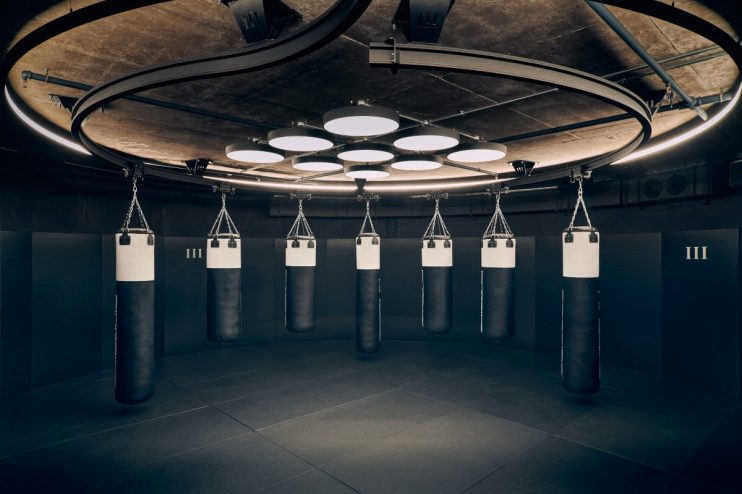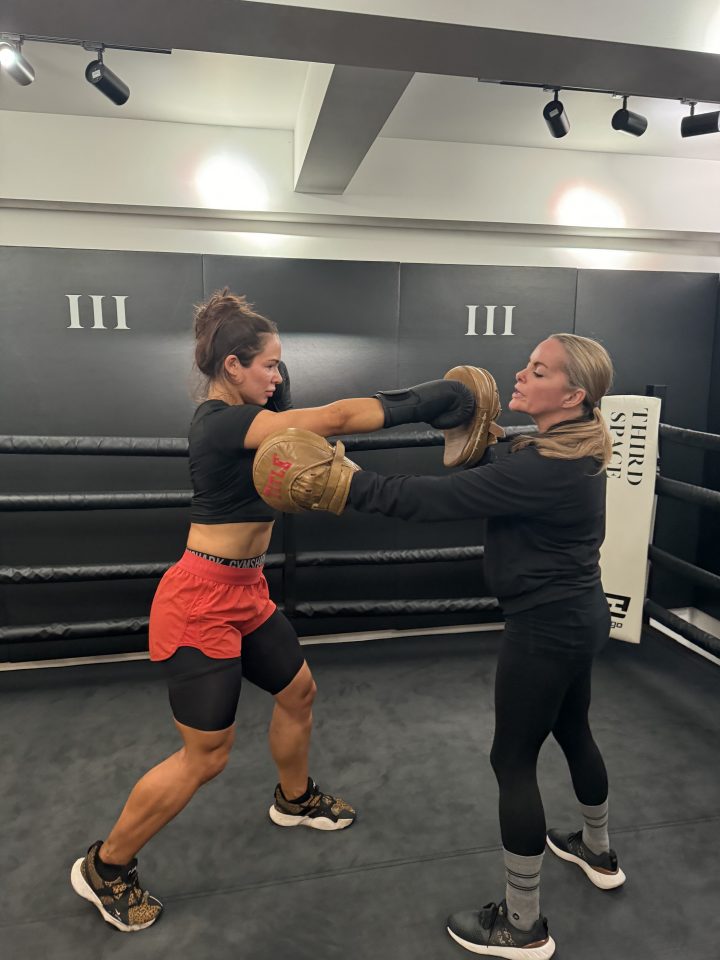Tuesday, May 28, 2024 9:53 PM

As one of the world's top female boxing champions, Cathy Brown illustrates how boxing can be a lifeline for women facing abuse and abandonment.
We meet at Third Space Soho, one of London's most prestigious fitness spaces, where the former European boxing champion now teaches as a personal trainer and boxing coach.
While the world's top winners often steal the spotlight, those who come third sometimes fly under the radar, especially in women's boxing in the 1990s. The 53-year-old won European and British boxing titles and rose to as high as number three in the world before neck and wrist injuries ended her career.
At the time, female boxers did not have the same support as they do today, especially from Cathy's Catholic family, who rejected and did not support her boxing dreams.
She says, “I was adopted and then I was in an orphanage for a while, so I grew up with very low confidence and self-esteem. I just didn't belong anywhere.”
“I used to feel really angry as a child. Back in the '70s, we didn't have a lot of emotional intelligence. We were encouraged to hide things and not talk about how we felt.”
“My adoptive family didn't really want to talk about anything that could be seen as a weakness, so I struggled a bit.”
knock down
This wasn't the only rejection she experienced: Cathy was adopted and then abandoned, rejected by her biological family, and endured domestic violence from a former partner when she was younger.
Cathy said: “When I was a teenager I met an older man who took a lot of interest in me and all of a sudden I felt worthy, but then he took full advantage of that.
“I was severely abused for two years and at one point he tried to kill me.
“So I ended the relationship and decided to leave home and study photography. When I left home I was still pretty angry because I had been through abuse that I was too ashamed to tell anyone about.”
Counterattack
While these experiences would have devastated many, boxing gave Cathy the determination to succeed in life.
“People used to tell me I was a bit aggressive – I called it assertiveness – and then someone introduced me to kickboxing.
“When I went there for the first time, something magical happened and I felt like I belonged somewhere,” she said.
“Punching the pads released all sorts of emotions and it was a place where I felt like I was in control. I was escaping reality.”
While practicing kickboxing in the 90s, Cathy worked as a police forensic photographer before being asked to turn professional in women's boxing in 1997.
“It got to the stage where my adoptive parents didn't want to talk to me because I had a professional boxing license,” she said.

“They said it was embarrassing that women shouldn't box. I'd brought shame to my Catholic family, but I'd found something I loved.”
“Boxing was my fight against sexism. I was often laughed at, but it gave me momentum. I wanted to prove that I could do it and that I was worthy.”
She now coaches at the flagship Soho Club of Third Space, a luxury gym that has invested in a world-class boxing ring.
Here Cathy was instrumental in establishing female-only boxing classes, creating a safe space for women to explore the physical and mental benefits of boxing. In her role at the club, Cathy has mentored a number of women, including those with visual impairments, chronic anxiety and neurodevelopmental disorders.
“I work with people with ADHD, dyspraxia and depression, and boxing helps because it's empowering,” Cathy says. “Boxing is the best mental health resource I've ever found.”
Outside the ring
Kathy is celebrated not only for her achievements in the ring, but also for her dedication to supporting young women facing hardships.
In 2019, Cathy traveled to Iraq to help young girls who had been sexually abused, gang raped, and other horrific atrocities committed by ISIS.
She said: “So now I run a charity called Headguard where I teach people how to take up boxing and we flew to Iraq and worked with girls in the camps.”
“And we've trained women to be boxing coaches. I went to Nepal last year and helped a lot of girls who'd been sex trafficked, abused and used as sex slaves, and worked with local charities. So, I find it really rewarding.”
For more information on boxing at Third Space, click here.
For more information on head guards, click here

